Knowledge is Power: Meet The Bengalurean Saving Lives During Our Morning Walks
But saving lives is not without its risks—besides the physical threat from criminals who target this community, Ganesh often has to resist emotional pressure from those who want to know the test results of others, which they feel will help them keep themselves safe.
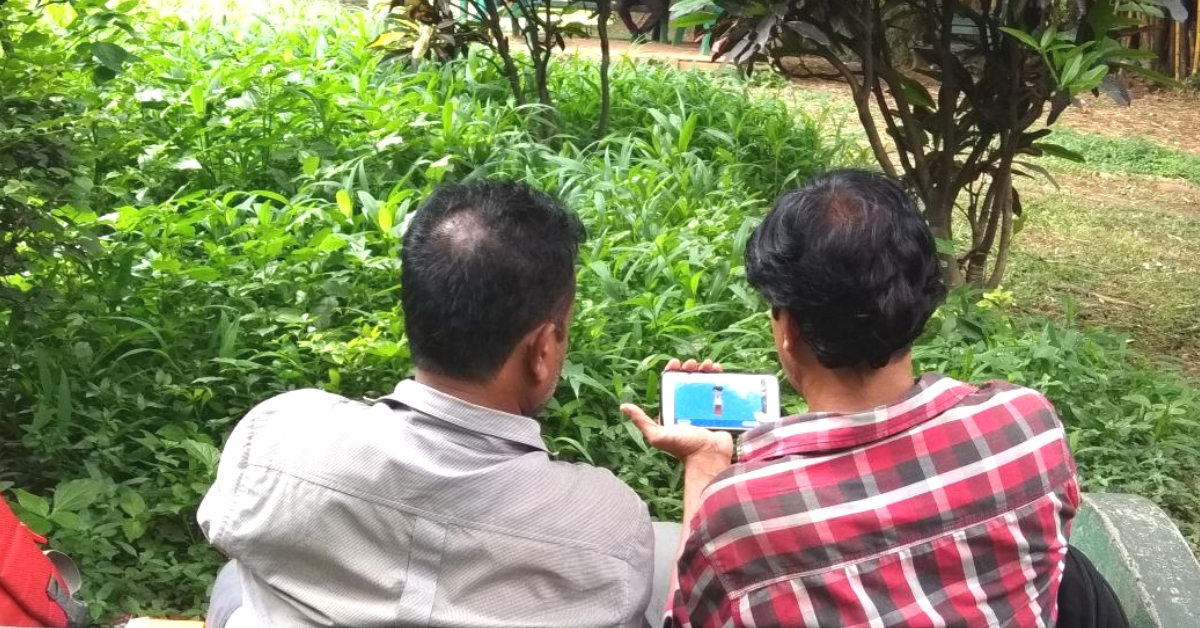
Cubbon Park is a place for sightseeing, enjoying nature or being part of an exercise, yoga or laughter club.
For 33-year-old Ganesh (name changed), it’s his workplace. He is a Health Facilitator for the MITHR programme, which provides counselling and screening on-site for those who are at risk for HIV, particularly when they are not being reached by existing services.
And how are the two connected? While many people come to Cubbon park to enjoy its beauty, it is also visited by several couples in their search for intimacy. Many of those people are unaware that unprotected sexual encounters can put them at risk of HIV, and hence do not take adequate steps to protect themselves during sex.
Most are also unaware of their HIV status as they do not get themselves tested.
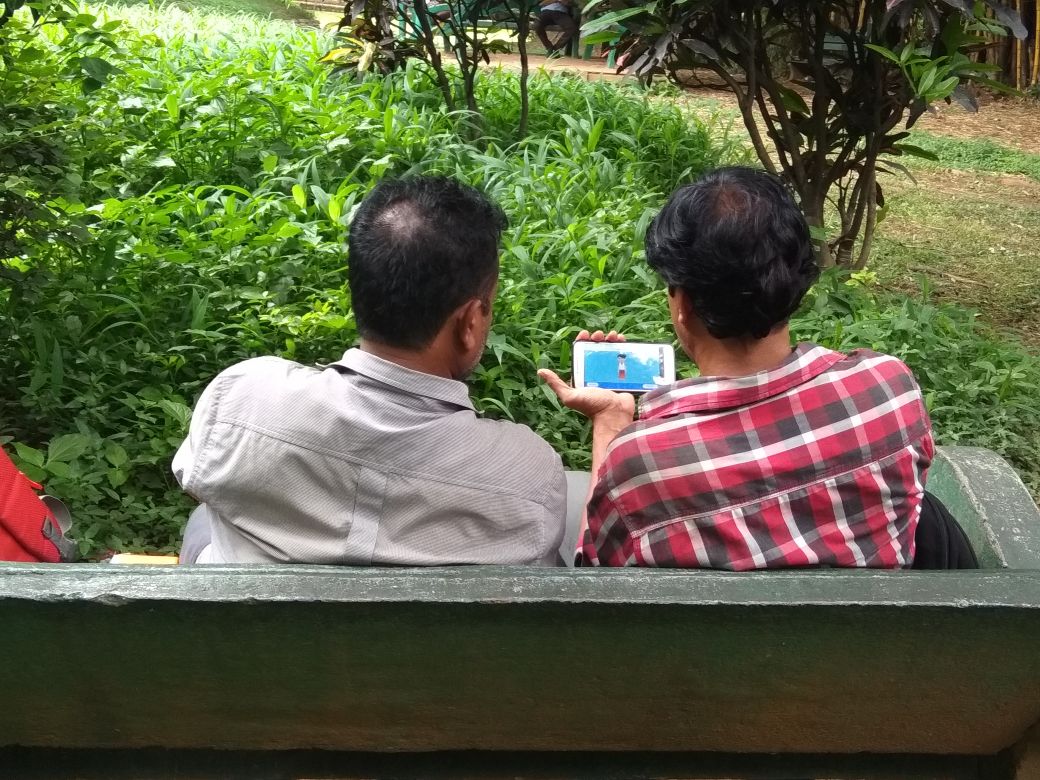
While knowledge and awareness of risky sex and HIV is one problem, access to a counselling and testing centre is another.
In India, there are many places where people can get screened for HIV for free, but there are barriers along the way. A person wanting to find out their status may not know where to go, the testing centre may be just too far away, or they may feel judged or stigmatised by the medical personnel there.
And so, HIV spreads, taking away lives and livelihoods. This is what Ganesh is trying to change.
These days, when he goes to Cubbon Park, he has a backpack with a medical kit consisting of rapid tests, needles, gloves and a mobile phone with an app to counsel and screen people for HIV.
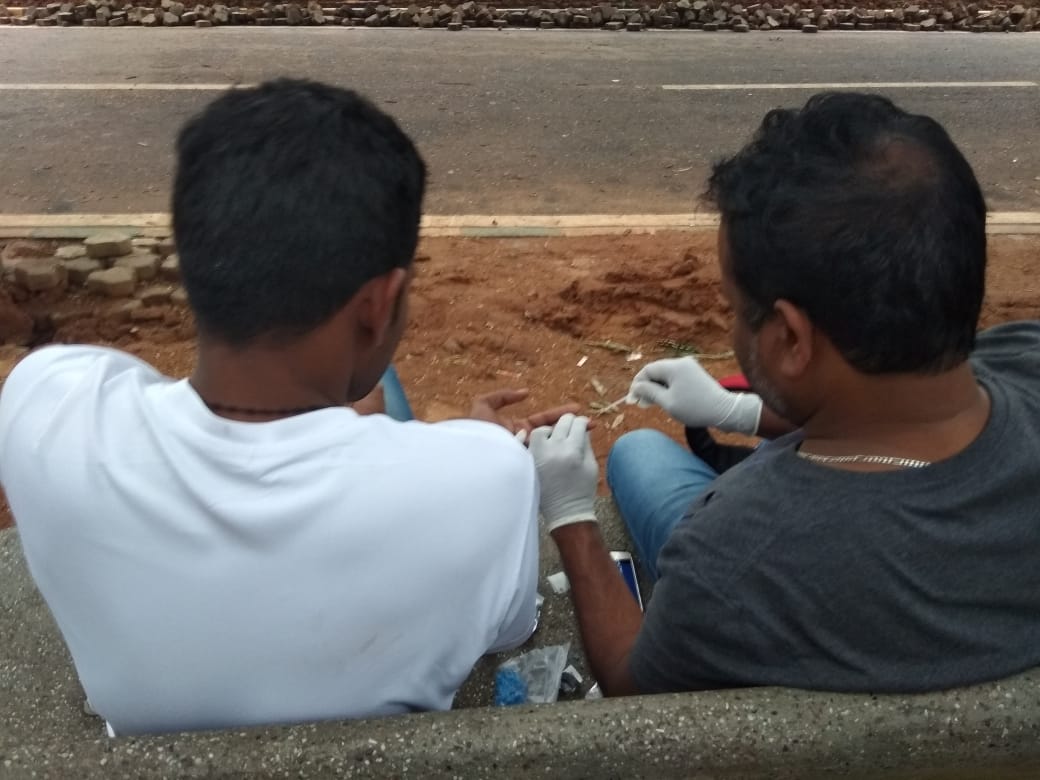
As someone who is well known in the community that meets at Cubbon Park, he can ensure these inaccessible people get screened when the medical care can’t even reach them.
Ganesh introduced me to two people he has worked with. The first is Abdul (name changed), a middle-aged gay man.
He tells me how he visited Cubbon Park and indulged in unprotected sex until he met Ganesh who taught him about safe sex practices, condom use and the need to be screened for HIV. Abdul was glad to hear that the HIV screening could be done by Ganesh right there and then.
Unfortunately, Abdul screened HIV positive.
At the Integrated Counselling and Testing Centre (ICTC), where Abdul’s test results were confirmed, they encouraged him to get his wife tested too. Understandably, it was difficult to break the news to her, but with the support of the counsellor, his wife took the test.
Fortunately, she tested negative. Abdul and his wife have decided to stay together, and now that his status is known, she can be protected against HIV infection, while Abdul takes his life-saving medication for AIDS.
28-year-old Arjun discovered he was gay about ten years ago when he was in his final year of school. He was lucky enough to have a friend who told him about the importance of safe sex, but he still occasionally had unprotected sex with his long-time partner and other men.
Arjun had never been tested before, but after seeing his friends get screened by Ganesh, he was encouraged to undergo screening as well.
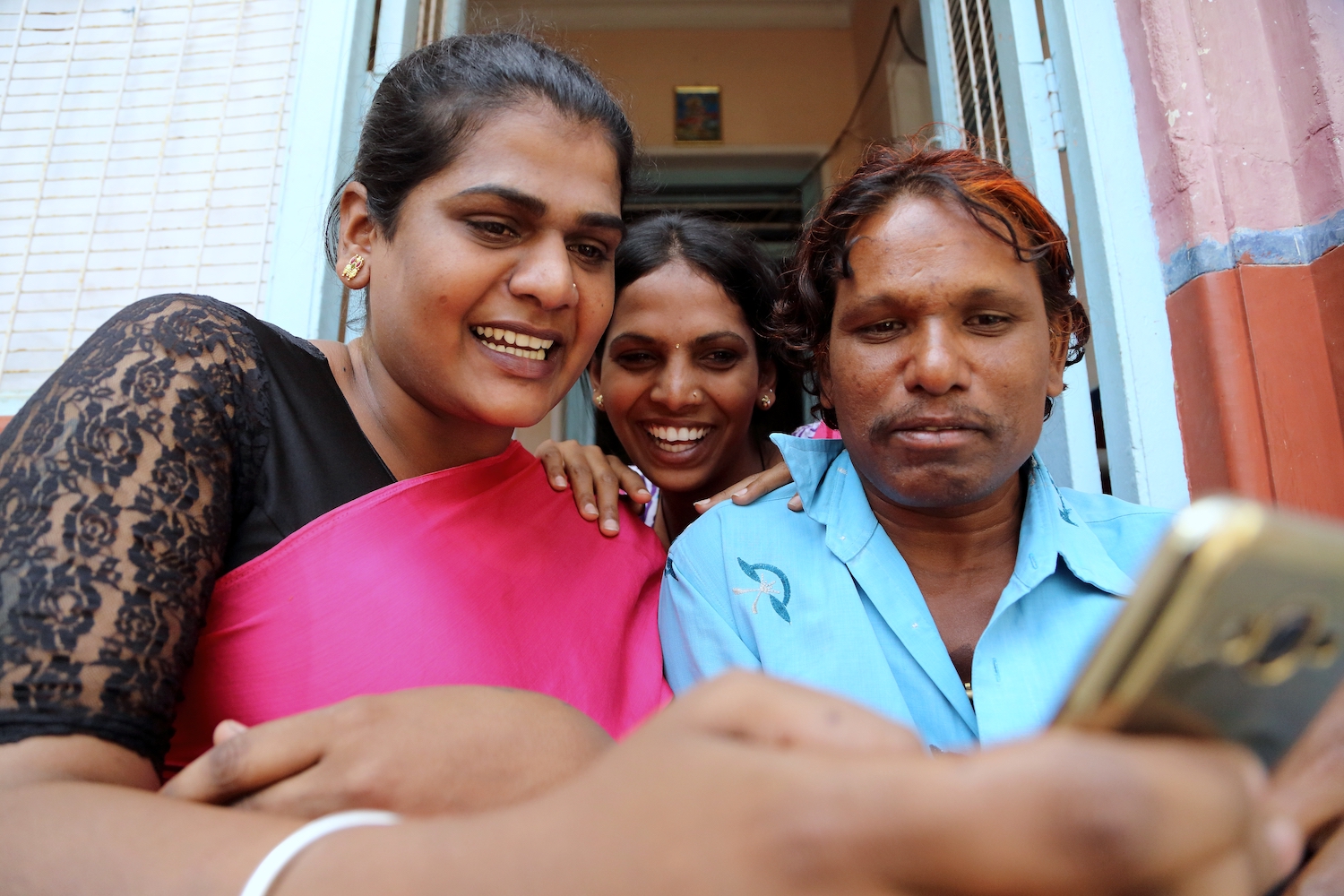
Abdul and Arjun are both perfect examples of a large group of people who need quick and safe access to HIV counselling and testing services. Additionally, a key partner of the MITHR programme is Swathi Mahila Sangha (SMS), a community-based organisation for female sex workers.
Deepu is a sex worker we met at one of the drop-in centres of SMS, who volunteered to share her story. A 31-year-old from Bengaluru and a mother of two, she has been in sex work for the last 18 years. Being a single mother, a trip to the ICTC would take at least a whole working day.
She says, “I used to have to wait from morning to evening at the ICTC for my report. When I get screened by the MITHR programme, I get my results in about 20 minutes.”
As a result, MITHR allows her to get tested more frequently. She also likes that the smartphone-based application provides counselling to users through informative videos in her local language–it clears her doubts and makes her feel safe.
She adds, “After working for 18 years as a sex worker, knowing my HIV status makes me feel positive about a healthier and longer life with my children.”
Also Read: She Left a Cushy Job for a HIV Patient– Today, This Doctor Works for the Poor!
The World Health Organisation strongly recommends that trained lay providers using rapid diagnostic tests be deployed to conduct safe and effective HIV testing services independently.
HIV is a virus that attacks the body’s immune system, and if untreated, causes a range of symptoms. However, once started on treatment, a person with HIV can live a long and healthy life without developing these symptoms—or AIDS, a disease which is potentially deadly. People with HIV who receive treatment are also less likely to infect others.
Besides unprotected sex, HIV can also be transmitted by sharing needles, for example, to inject drugs; through breastfeeding; and blood transfusions.
Knowing how HIV is transmitted is key to staying safe—using condoms every time you have sex will protect you from getting infected. It is equally important to realise what doesn’t transmit the HIV infection–casual contact such as kissing, hugging, sharing food or using the same toilet.
Community testing programmes can affect the community in two ways. A trusted person within these hidden communities can provide its members with life-saving knowledge, and they get confidential, quick and respectful access to screening so that they can take care of themselves and their partners sooner—or at all.
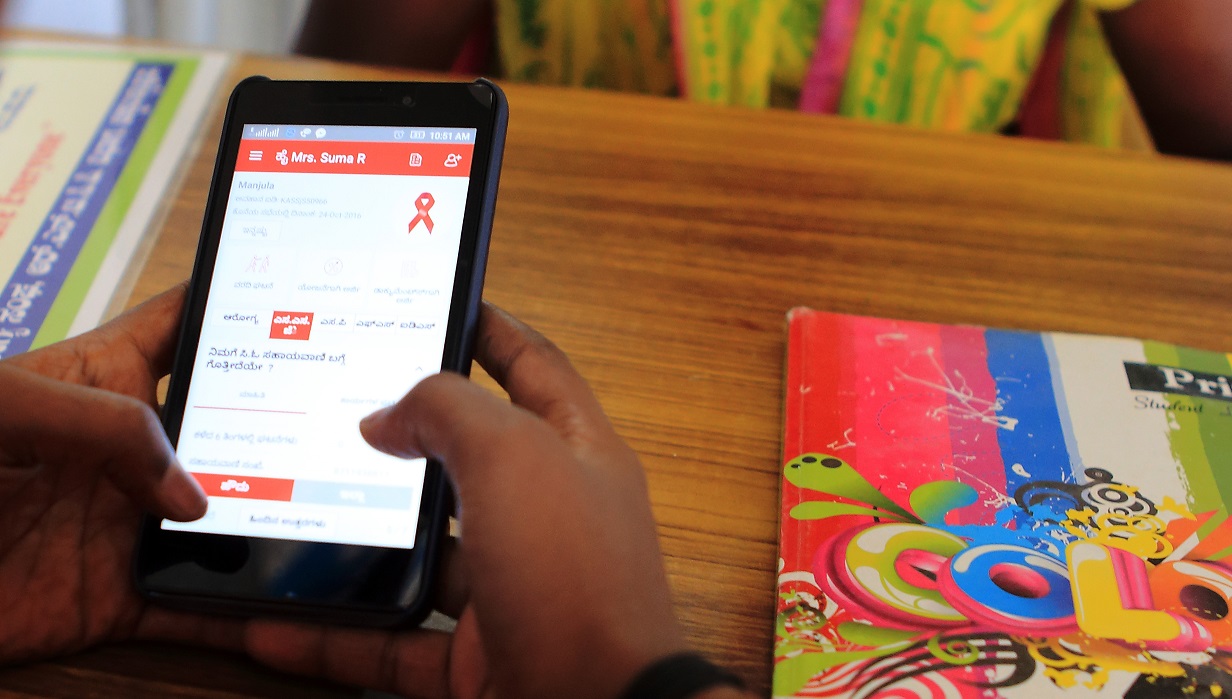
But saving lives is not without its risks—besides the physical threat from criminals who target this community, Ganesh often has to resist emotional pressure from those who want to know the test results of others, which they feel will help them keep themselves safe.
Sometimes he knows that people who have received a positive diagnosis continue to have unsafe sex, but can’t act on that knowledge because confidentiality is the backbone of the programme.
You May Also Like: Kolkata Man’s Kindness Kickstarts India’s 1st Cafe Run by HIV Positive Teenagers!
With growing community acceptance and support from the local police for his work, he knows that preventing HIV will one day become as simple as a walk in the park.
Photographs by Satish VM for Swasti Health Catalyst
(Written by Maarten Nijhof and Edited by Shruti Singhal)
Like this story? Or have something to share?
Write to us: [email protected].
Connect with us on Facebook and Twitter.
If you found our stories insightful, informative, or even just enjoyable, we invite you to consider making a voluntary payment to support the work we do at The Better India. Your contribution helps us continue producing quality content that educates, inspires, and drives positive change.
Choose one of the payment options below for your contribution-
By paying for the stories you value, you directly contribute to sustaining our efforts focused on making a difference in the world. Together, let’s ensure that impactful stories continue to be told and shared, enriching lives and communities alike.
Thank you for your support. Here are some frequently asked questions you might find helpful to know why you are contributing?


This story made me
-
97
-
121
-
89
-
167













